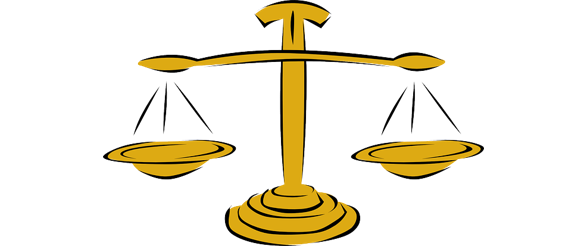Oletko katsonut Netflixistä sarjan Manhunt, joka käsittelee Unabomberin tarinaa? Jos et, suosittelen. Jos olet, muistatko jaksosta ”Fruit of the Poisonous Tree” kohdan, jossa Unabomber keskustelee kielianalyytikko James Fitzgeraldin kanssa etsintäluvasta (kausi 1, jakso 3, 7:20-10:30)? Se nyrjäytti aivoni.
Kyseisessä kohdassa Unabomber toteaa näin:
”This is your search warrant. It’s based on your linguistic analysis. This is what got you into my cabin. And he prosecution’s entire case rests on this one document. Your document. So I thought we could discuss something I learned about only recently called ‘Fruit of the Poisonous Tree’. That is the option you’re neglecting to mention, the option where I get all this evidence thrown out. And I walk away a free man.
The only evidence connecting me to the Unabom attacks was found inside my cabin. The only reason the FBI was legally allowed to search my cabin was because of your search warrant. But if the search warrant was issued on false pretenses or based on arguments that fail to meet the burden of proof, well, then all the evidence found at that location is deemed fruit of the poisonous tree.
It’s tainted. It’s inadmissible. It’s got to be thrown out. So if the search warrant goes, then all their mountains of evidence simply… disappear. Do you follow?”
Tämä on totta
Amerikan oikeuslaitoksessa on sellainen jännä toimintamalli, että etsintäluvan jälkeen saadut todisteet joudutaan jättämään kokonaan käsittelemättä ja huomiotta, jos ne on hankittu väärin perustein. Siinäkin tapauksessa vaikka ne kiistatta osoittaisivat tekijän syylliseksi. Suomessa tällaista kuriositeettia ei muuten ole: todiste on todiste, vaikka se olisi hankittu vähän kyseenalaisillakin tavoilla.
Edellisestä sitaatista tärkeä kohta on ”based on arguments that fail to meet the burden of proof”. Eli esimerkiksi etsintäluvan oikeutus täytyy perustella argumenteilla, joita ei voi epäillä, jotka ovat kiistattomia. Unabomberin puheenvuoro nimittäin jatkuu:
“The whole case depends on the evidence from the cabin. The evidence from the cabin depends on the search warrant but the search warrant depends on this thing called forensic linguistics, which is a field that you just invented, James R. Fitzgerald. There is no precedent in all legal history for a search warrant based on linguistic analysis. So the question I then place before the court becomes, do we trust this man as so expert that we trust his invention?
Where did you get your formal training in linguistics, your PhD, you Master’s? As I hear it, the majority of your law enforcement career was spent on the graffiti squad of a small-town police department. Is that right? Now, would you say that this time spent reading graffiti constitutes your linguistic training? By the way we haven’t even gotten to the content of the warrant yet. Perhaps I should leave you with my annotations. They’re quite extensive.”
Tässä kohtaa Fitzgerald on jo melko kalpea ja toteaa tärisevällä äänellä: “I was right.” Mikä on totta. Hän oli oikeassa, mutta…
Tämä nyrjäytti aivoni
Unabomber: “Mm. Well, it doesn’t really matter if you’re right. It matters if they believe in you. And if they don’t believe in you, they can’t trust the warrant. And if they can’t trust the warrant then I walk out of here.”
Näiden lauseiden kohdalla unohdin hengittää ja kylmät väreet vilistivät selkäpiitä pitkin. ”Sillä ei ole merkitystä, olitko oikeassa. Sillä on merkitystä, uskovatko he sinua.” Näin on aina ja kaikkialla.
Retoriikan opeissa on iän kaiken todettu, että se mitä sanotaan, on alisteinen sille, miten sanotaan. Nämä kaksi taas ovat auttamatta alisteisia sille, kuka sanoo. Jos emme usko sanojaa ja pidämme häntä epämiellyttävänä tai epäilyttävänä, pyrimme löytämään hänen sanomisistaan puutteen, joka osoittaa epäilyksemme sanojaa kohtaan oikeaksi.
Tällaisia me ihmiset olemme, se on syytä hyväksyä. Netflix-sarjan jakso oli siitä poikkeuksellisen pysäyttävä esimerkki. Kunpa alkaisimme kiinnittää enemmän huomiota siihen, kuinka faktojen lisäksi puheemme olisi myös tunnetasolla luotettavaa, uskottavaa ja vakuuttavaa.
